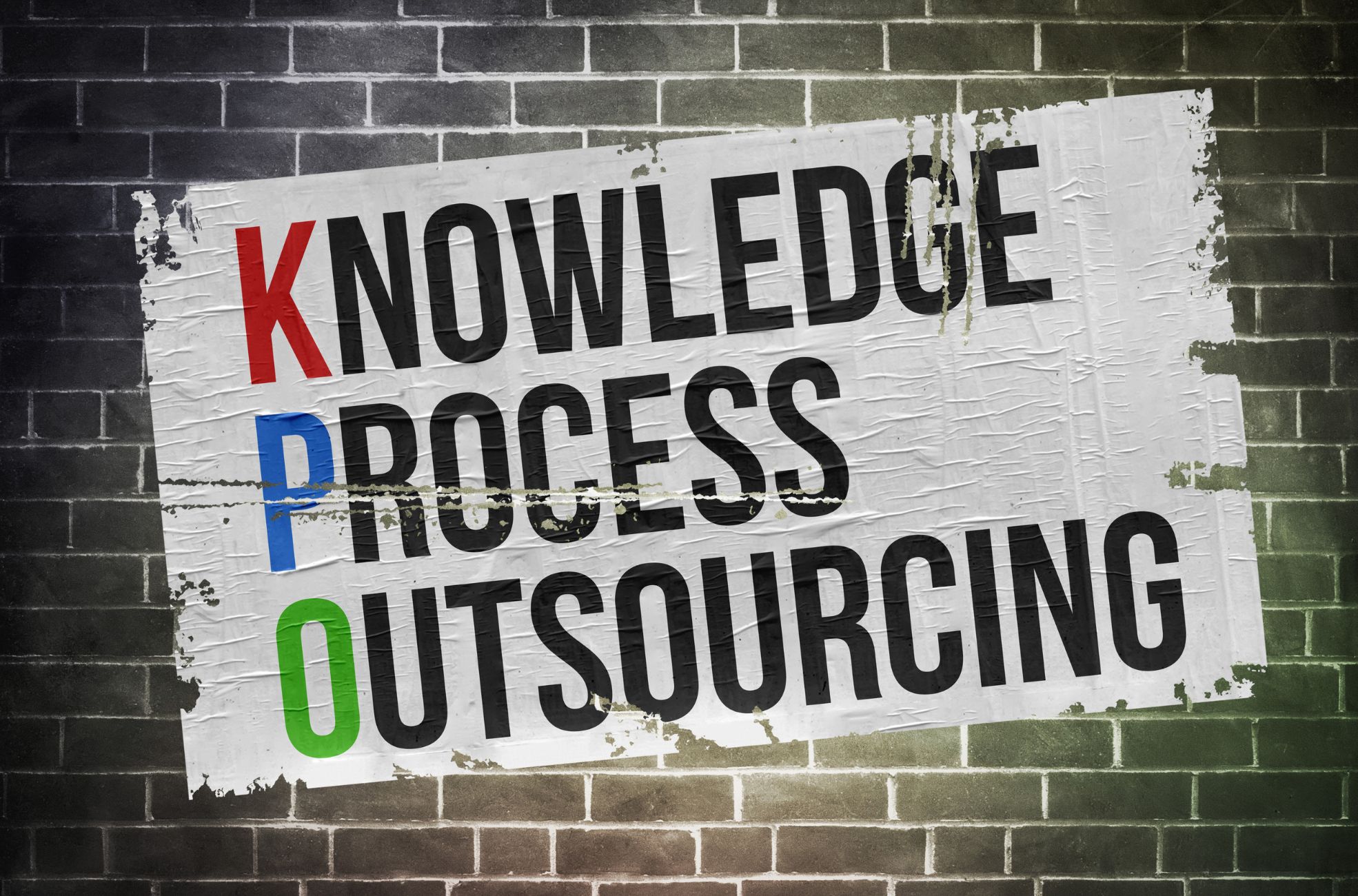Knowledge Process Outsourcing (KPO) represents a strategic evolution in how companies handle their most sophisticated and knowledge-intensive tasks. By partnering with specialised external firms, organisations can harness global expertise and innovation, often at a more economical cost than internal development. We look into the multifaceted advantages of KPO, from accessing specialised knowledge and cost-saving strategies to enhancing business focus and agility.
We further outline the implementation and management knowledge process outsourcing, address key considerations for success, and weigh the potential disadvantages. As businesses continue to navigate an increasingly competitive landscape, understanding the strategic benefits and implications of KPO becomes essential for those aiming to maintain a cutting-edge position in their respective industries.
What is Knowledge Process Outsourcing (KPO)?
Knowledge Process Outsourcing (KPO) is a form of outsourcing in which core, information-centric business activities are handed over to external organisations or individuals with specialised technical knowledge and expertise. Companies often make this strategic move to tap into advanced skills and knowledge that might be scarce within their own workforce. KPO lets businesses access a pool of highly skilled professionals, often at a more cost-effective rate than if they were to develop such expertise in-house.
How KPO Differs from BPO
KPO stands apart from Business Process Outsourcing (BPO) in several key ways. While BPO focuses on outsourcing routine, operational tasks primarily to save costs, KPO deals with more complex, analytical, and specialised work. The nature of KPO requires a workforce with a higher level of education and expertise.
These professionals are capable of problem-solving and decision-making in complex processes. This differentiation highlights the strategic nature of KPO. It’s not just about saving money; it’s about boosting the outsourcing company’s intellectual capital.
Types of Knowledge Services Offered
The range of services offered through KPO is broad and includes various domains that require deep analytical skills and specialised knowledge. Common areas include financial consultancy, market research and development, and business operations, such as management consulting.
Technical analysis and investment strategies are also part of the services provided. Legal, medical, healthcare and data analytics are included in KPO services. These services aren’t just about providing support; they contribute to strategic decision-making and innovation within the client company.
Key Industries for KPO
KPO has made its mark across a variety of industries. Each industry looks to leverage external expertise to gain a competitive edge or tackle specific challenges. Industries that commonly engage in KPO include the financial sector, where companies seek expert advice on investments, risk management, and market strategies.
The legal and healthcare sectors also significantly use KPO for specialised knowledge that isn’t readily available in-house. Moreover, the technology sector frequently turns to KPO for research and development to speed up innovation without the overheads associated with permanent research staff. KPO’s flexibility allows companies to quickly respond to industry changes and maintain a dynamic approach to their business challenges.
Benefits of Knowledge Process Outsourcing
Access to Specialised Knowledge
KPO enables organisations to engage with professionals with expertise in specific fields, such as financial services, which encompasses tax processing and payroll management. These experts bring a level of proficiency that ensures business operations managers’ critical functions are managed effectively.
The reliance on specialised technical skills used in KPO is evident in roles that require a combination of IT proficiency, domain-specific insights, and a proven history of relevant work experience, which is particularly beneficial for intricate decision-making scenarios. Collaborating with KPO providers grants access to a workforce that is not only well-educated but also equipped with the most current technological tools pertinent to their specialities.
Cost Reduction Strategies
Adopting KPO can result in substantial financial benefits. Companies can take advantage of lower labour costs in regions with more economical wage structures. This strategy reduces spending on infrastructure, resources, and internal training.
Since KPO providers often operate remotely, this can further decrease operational expenses. The ability to receive support at any hour is an additional advantage when engaging with firms across various time zones, providing an edge for businesses aiming for continuous operation or expansion into international markets.
Moreover, outsourcing to offshore KPO firms may offer fiscal incentives, as some countries offer tax benefits to attract foreign investment.
For instance, KPO entities in India are exempt from the 18% Goods and Services Tax, which can be financially advantageous for outsourcing companies and those who choose to outsource to such regions.
Enhancing Business Focus
Delegating knowledge-intensive tasks to KPO entities can refine a company’s focus and operational efficiency. Redirecting internal resources to areas of strategic importance sharpens core competencies. It liberates capital and workforce for reinvestment in other business segments.
KPO providers are adept at streamlining organisational processes and offering adaptable service agreements to meet each client’s specific requirements. This flexibility can alleviate the workload of in-house staff, potentially boosting overall productivity.
Additionally, KPO firms excel in identifying and managing potential risks within business operations. Their ability to swiftly address and resolve issues underscores their expertise and decision-making autonomy, distinguishing them from the more directive-following nature of BPO services, where vendors typically adhere to the client’s guidelines. In contrast, KPO professionals are encouraged to utilise their judgement and apply their expertise to benefit their clients.

Implementing KPO in Your Business
Identifying Core vs. Non-Core Processes
To effectively implement KPO, distinguishing between your core and non-core processes is essential. Core processes are integral to your company’s competitive advantage and value proposition. In contrast, non-core processes, though important, do not define your business’s unique market position. By identifying these, you can maintain control over your business processes’ primary competencies while leveraging the specialised knowledge and expertise of KPO providers to enhance non-core processes.
Selecting the Right KPO Partner
The success of your outsourcing initiatives hinges on selecting an appropriate KPO partner. The ideal partner should offer industry-specific expertise, thereby providing access to specialised, knowledge-based processes that may be lacking internally. When searching for a KPO partner, consider their track record and the alignment of their capabilities with your strategic goals. Their ability to deliver measurable outcomes should also be a key factor in your decision.
With a wide array of providers in a market projected to grow significantly, finding a partner that can effectively drive your organisational performance is crucial.
Transitioning Processes Securely
Transitioning processes to a KPO provider must be managed with utmost security and diligence to safeguard sensitive data and intellectual property. Establishing clear protocols and secure channels for data transfer is part of this process. Compliance with regulatory standards and robust confidentiality agreements are also necessary. The complexity and dynamic nature of KPO necessitates a meticulous approach to transitioning processes to ensure the protection of sensitive information throughout the outsourcing lifecycle.
Managing Communication and Performance
Regular monitoring and reporting on KPIs are vital to ensure that outsourced processes align with strategic objectives and maintain staff motivation for continuous improvement. KPIs should be simple, specific, measurable, attainable, realistic, and timely and linked to organisational objectives to foster transparency and collaboration across departments. Assigning clear responsibility for tracking and reporting on KPIs can enhance motivation and the likelihood of success.
KPIs should be reviewed regularly to align with your organisation’s business strategy. It is also important to evaluate their effectiveness in measuring a range of business activities, including financial performance, customer satisfaction, process efficiency, and employee engagement. This helps in understanding performance in key areas and identifying opportunities for improvement, contributing to KPO’s strategic advantages.
Key Considerations for KPO Success
Establishing Clear Objectives
For KPO to be successful, companies need to start with well-defined objectives. Identifying the specific knowledge gaps and the type of expertise required is crucial. This could range from financial consultancy and project management to technical analysis or legal services. By setting clear goals, companies can ensure their KPO initiatives are in line with their overall business strategies and meaningfully contribute to their competitive edge and bottom line.
Ensuring Data Privacy and Security
Data privacy and security are paramount in KPO due to the handling of sensitive information. To mitigate the risks of intellectual property theft or data breaches, KPO providers must adhere to the highest confidentiality standards and implement robust security measures. This includes regular audits, compliance with international data protection regulations, and secure communication channels. Online attendance trackers can also monitor remote employees and ensure adherence to data security protocols.
Creating an Effective Governance Model
An effective governance model is essential for the smooth operation and activities of a KPO firm. This involves establishing clear communication and decision-making processes between the client and the KPO provider. Addressing potential legal, language, and cultural barriers is necessary to prevent workflow disruptions or misunderstandings. A governance model that promotes transparency and accountability can help maintain work quality and consistently meet client expectations.
Talent Management in KPO
Attracting and retaining a workforce with specialised skills is a significant challenge in the KPO sector. Competitive compensation and opportunities for professional development are crucial for attracting top talent. Effective talent management is equally important, with tools like online attendance trackers aiding in maintaining a healthy work-life balance and reducing burnout. By optimising resource use and minimising operational costs, KPO firms can expand their client base, diversify their risk, and enhance business stability.

The Disadvantages of KPO
Security Risks
Transferring proprietary data internationally can introduce significant security risks, particularly when the recipient country’s legal and regulatory frameworks are less robust than those in the client’s country. The threat of security breaches and fraudulent activities has underscored the importance of stringent measures to safeguard intellectual property and customer data. Companies must devise stronger strategies to maintain confidentiality and comply with complex international regulations that may not offer sufficient protection for intellectual assets.
Loss Of Control
Entrusting external entities with core business functions can result in challenges such as diminished service quality, subpar work, and delays. Cultural disparities can further complicate these issues. Managers must vigilantly oversee the KPO process to avert these pitfalls, which is more challenging when the providers are geographically distant.
To manage KPO engagements effectively, a structured approach to resource management, grounded in objective performance metrics and global reporting, is necessary. In some cases, companies may find that refining their processes internally leads to cost savings that surpass those offered by KPO providers, prompting a reassessment of the outsourcing strategy.
Communication Barriers
Differences in language can pose significant obstacles to the success of KPO initiatives. Providers may mitigate this by enhancing language training or establishing operations in regions with higher English proficiency. However, when communication falters, it can result in extended turnaround times and influence the company’s culture.
Some businesses have repatriated complex customer service operations due to customer dissatisfaction. Internal teams interfacing with KPO services can also face difficulties due to language issues. Voice-based and knowledge-intensive tasks may not be suitable for offshoring or nearshoring within a KPO framework, leading some companies to consider onshore alternatives for managing these risks.
Harnessing KPO for Strategic Growth
Embracing Knowledge Process Outsourcing enables forward-thinking companies to harness global expertise and innovate their operations. By leveraging the specialised skills provided through KPO, organisations can focus on their core competencies, navigate complex business landscapes, and optimise cost structures.
The key to maximising the strategic benefits of KPO lies in choosing the right partner, using knowledge processes, safeguarding data integrity, and maintaining clear communication channels. When these elements align, KPO becomes more than just an outsourcing model; it’s a catalyst for business transformation and sustained competitive advantage. As the business world evolves, KPO stands as a beacon for enterprises aiming to thrive in an increasingly knowledge-driven economy.









